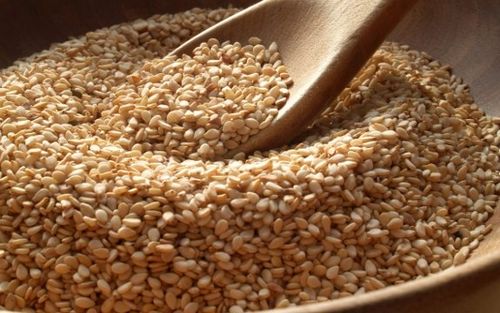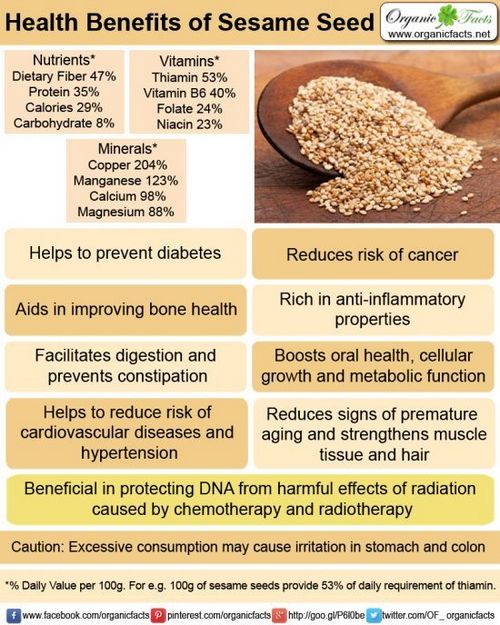What Are the Benefits of Sesame Seeds?

Sesame is an evergreen flowering shrub in the family Sesamum, or venue. A number of wild relatives occur on the Indian subcontinent and several in Africa. It is extensively grown for the seeds, which often grow in small pods, and is naturalized most widely in tropical areas around the globe.
Sesame seeds are rich in fatty acids and polysaccharides, but have not been studied very much. They are thought to be good sources of linoleic acid, a fatty acid needed for cell growth. Fatty acids are also present in some soy products, and some studies have suggested that they can prevent the onset of diabetes and other ailments related to obesity. Some of the fatty acids in sesame seed products include: stearic acid, palmitic acid, and eicosapentaenoic acid.
Sesame seed is also a rich source of zinc, an essential mineral, which helps in regulating blood sugar levels. It is also a good source of folic acid, an important trace element for healthy brain function. The sesame seed is also a rich source of magnesium and phosphorus, essential minerals for normal bone health.
Other nutrients contained by sesame seeds include phytosterols, an organic compound similar to aspirin and vitamin E. Phytosterol is considered to have anti-inflammatory and anti-cancer activity. Some studies suggest that sesame seed can also help reduce cholesterol and triglyceride levels. However, studies have shown mixed results concerning sesame seed’s ability to help people suffering from Alzheimer’s disease. There is also some debate about the effects of sesame seed on heart disease. More research is needed to determine whether sesame can slow the progress of cardiovascular disease.
In addition to their antioxidant activity, sesame seeds contain linoleic acid and other fatty acids, which are thought to have a beneficial effect on heart health. However, it is not clear whether these fatty acids can actually help prevent heart disease. More research is needed to determine whether sesame seed has any effect on high cholesterol and blood pressure.
Another area of potential interest is the effect of sesame seeds on cancer. Studies indicate that sesame may lower the risk of ovarian and cervical cancer. However, more research is needed to confirm these claims.
Sesame seeds have been used for centuries to treat a variety of skin conditions. People who are at risk for eczema and psoriasis often benefit from regular consumption of sesame seeds.

Some people also report feeling more energetic and alert after eating sesame seeds.
No side effects have been reported with sesame supplementation, although there are no reports of allergic reactions. So it appears that sesame seeds have beneficial effects on many aspects of human health.
However, many people are concerned about the use of natural plant ingredients in cosmetic products. Sesame seeds are sometimes included in skin care products. Many consumers believe that the presence of chemicals in these products causes them to cause problems for the body.
Although the presence of chemicals is not a problem with sesame seeds, the inclusion of other natural ingredients such as sarsaparilla is another concern. The use of sarsaparilla in skincare products has been banned in some countries. Despite its popularity as a natural ingredient, there are several studies that show that sarsaparilla has harmful side effects on the liver and kidneys.
If you are pregnant or lactating, it is not recommended that you consume sesame seeds. Although they are not known to harm nursing babies, there is no scientific evidence indicating they have a negative effect on the development of the baby. There is also no evidence that consuming sesame seeds will adversely affect the growth of your child.
One of the most important things to remember is to take good care of your skin. A balanced diet with a lot of fresh fruits and vegetables and lots of antioxidants will have positive effects on your skin and on your overall health.
